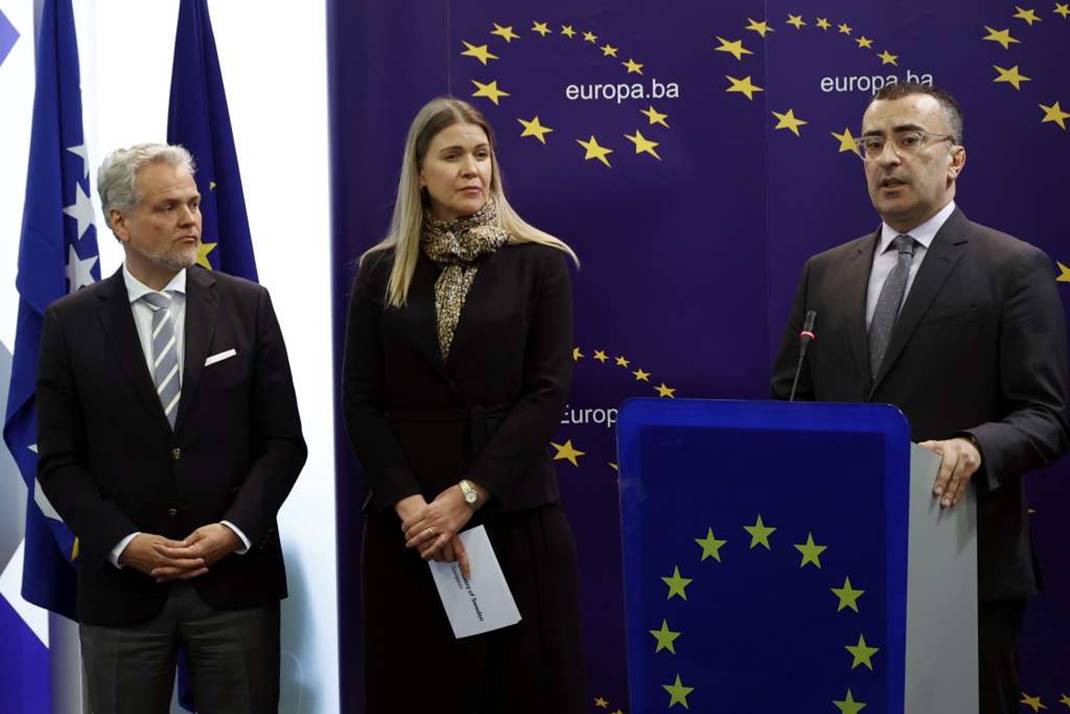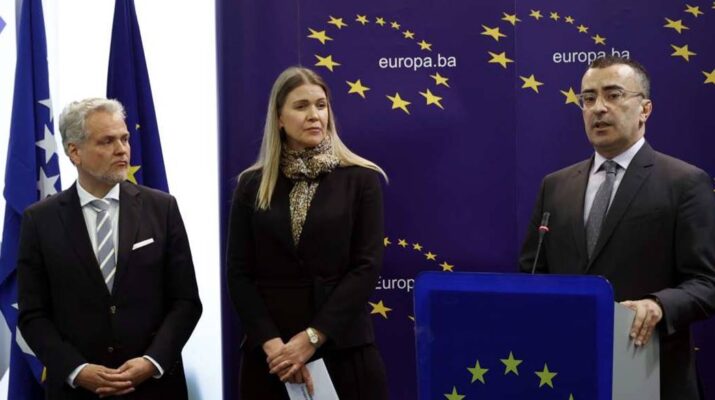The EU delegation in Sarajevo supports the requests regarding the introduction of new technologies in the electoral process

The EU delegation in Sarajevo supports the demands of civil society organizations in the context of the introduction of new technologies in the electoral process in BiH as well as strategic determinations in the context of the implementation of the judgments of the European Court of Human Rights from Strasbourg.
The delegation of the Council of Civil Organizations gathered around the Declaration on Constitutional and other reforms of BiH on the way to the EU and NATO in the EU delegation building in Sarajevo met with Mr. Joeri Maas, senior advisor of the executive office of Ambassador J. Sattler on the topics of introducing new election technologies, redefining election boards and future amendments to the Constitution of Bosnia and Herzegovina in the context of the implementation of judgments of the European Court of Human Rights.
The delegation of civil organizations informed Mr. Mass about the activities carried out in connection with discussions on technical amendments to the Election Law with the leadership of the Parliamentary Assembly of Bosnia and Herzegovina and the CEC of BIH. At the meeting, it was underlined that with the goodwill of domestic and international political factors, technical changes to the Election Law can be implemented and can be ready for the local elections that will take place in 2024.
The EU delegation thinks that it is necessary to implement all final judgments of the ECHR, the fundamental principles of Council of Europe Assembly Resolution No. 1513, which representatives of the civil sector insist on, and which would direct Bosnia and Herzegovina towards the European path. At the meeting, it was agreed that it is necessary to respect the opinion of the Venice Commission, as a European legal body.
Civil society organizations insisted that the EU delegation in Bosnia and Herzegovina be clearly defined according to those who obstruct the country’s European path, and especially that they be active in the implementation processes of the Dayton Peace Agreement where the EU is one of the witnesses.
In the opinion of civil society organizations, the EU delegation should have a clearer and stronger role in advocating European standards, which should be integrated against secessionist and Ethno-territorial divisions in BiH. The determination of the EU delegation should be more clearly presented in BiH society and the public.
Mr. Maas thanked the civil organizations for their activity in the current important processes in Bosnia and Herzegovina society and expressed the necessity of a stronger involvement of the civil sector in the processes of amending the Election Law and the Constitution of Bosnia and Herzegovina and presenting the multi-ethnicity and multiculturalism of Bosnia and Herzegovina and the equality of all citizens.
The meeting was attended by Vladimir Andrle, Jewish cultural society La Benevolentcija, Aida Daguda, Center for the Promotion of Civil Society, Miro Lazović, Forum of BiH Parliamentarians 1990, Jakob Finci, the appellant before the ECtHR, Emir Zlatar, Council of the Congress of Bosniak Intellectuals, Kasim Trnka, an expert in areas of constitutional law.
(FACE TV)
Napomena o autorskim pravima: Dozvoljeno preuzimanje sadržaja isključivo uz navođenje linka prema stranici našeg portala sa koje je sadržaj preuzet. Stavovi izraženi u ovom tekstu autorovi su i ne odražavaju nužno uredničku politiku The Balkantimes Press.
Copyright Notice: It is allowed to download the content only by providing a link to the page of our portal from which the content was downloaded. The views expressed in this text are those of the authors and do not necessarily reflect the editorial policies of The Balkantimes Press.

